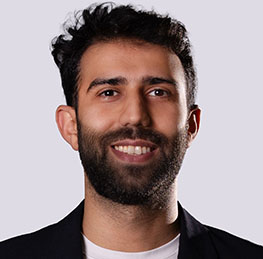
Omar Alhussein is an Assistant Professor in the Department of Computer Science at Khalifa University, United Arab Emirates. Prior to this, he served as a Senior Research Engineer with the Advanced Networking Team at Huawei Technologies Canada in Ottawa from 2020 to 2023. He holds a Ph.D. in Electrical and Computer Engineering from the University of Waterloo, Canada (2020), an M.A.Sc. in Engineering Science from Simon Fraser University, Canada (2015), and a B.Sc. in Communications Engineering from Khalifa University, United Arab Emirates (2013). His research interests include network automation and optimization, network management, and machine learning.
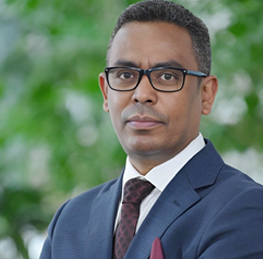
Dr. Berihu Teklu Gebrehiwot graduated from the University of Milan, Italy, with a Ph.D. in Theoretical Quantum Information. He was a postdoctoral fellow at the University of Milan, at University of Blaise Pascal in France and at the Center for Cyber-Physical Systems (C2PS), Khalifa University in Abu Dhabi, before joining the Department of Mathematics as Assistant Professor.
He is a Mathematical Physicist, and his expertise includes quantum information, quantum metrology and sensing and quantum computation. His main contributions are in the fields of quantum estimation of states and operations, generation and application of entanglement, quantum information, and communication.
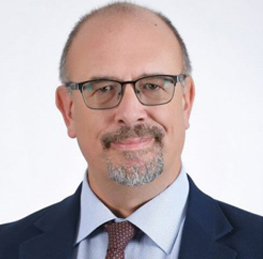
Prof. Ernesto Damiani is a Professor of Practice in the Electrical and Computer Engineering department and the Senior Director of the Khalifa University Center for Cyber Physical Systems (C2PS).
Dr. Damiani holds a full professorship at the Department of Computer Science, Università degli Studi di Milano, Italy, where he leads the SESAR research lab.
Ernesto’s research interests include data-intensive service-oriented architectures, Cyber-Physical Systems security and privacy-preserving Artificial Intelligence and Data Analytics.
Dr. Damiani has held visiting positions at a number of international institutions, including George Mason University in Virginia, US; Tokyo Denki University, Japan; LaTrobe University in Melbourne, Australia; and the Institut National des Sciences Appliquées (INSA) at Lyon, France. He has been a Fellow of the Japanese Society for the Progress of Science.
Dr. Damiani served as Principal Investigator of many large-scale research projects funded by the European Commission in the context of the Horizon and Next Generation Europe Programs, by the Italian Ministry of Research, and by private companies such as British Telecom, Cisco Systems, SAP, TIM/Telecom Italia, Siemens Networks (now Nokia Siemens) and many others.
Dr. Damiani is the Editor-in-Chief of the Transactions on Service Computing, the flagship Transaction on Services of the IEEE Computer Society. He has served in the editorial board of several others international journals, including the IEEE Transactions on Fuzzy Systems and the IEEE Transactions on Industrial Informatics. He served as Vice-Chair of the ACM Special Interest Group on Applied Computing, and of IEEE Technical Committee on Industrial Informatics.
In 2008, Ernesto was nominated ACM Distinguished Scientist. He received many awards, including the Chester Sall Award from the IEEE Industrial Electronics Society, the Research and Innovation Award from the IEEE Technical Committee on Homeland Security and the Outstanding Service Award from the International Federation of Information Processing (IFIP).
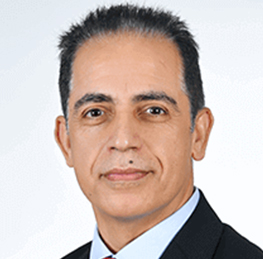
Prof. Mahmoud Al Qutayri is the Associate Provost for Academic Operations and Professor of Electrical Engineering and Computer Science at Khalifa University. He is affiliated with the university’s System-on-Chip Center, focusing on high-performance and energy-efficient electronic systems. With prior academic and industry experience in the UK and UAE, Prof. Al Qutayri has authored numerous publications, books, and patents. His research interests span embedded systems, AI hardware, in-memory computing, IoT, and wireless sensor networks. He has also served on editorial boards and committees for major international conferences, including GLOBECOM, ICIP, and ICECS.
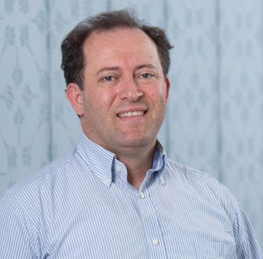
Hisham Sati is Professor of Mathematics at New York University Abu Dhabi, joining from the University of Pittsburgh where he supervised four PhD students and taught a wide range of undergraduate and graduate courses, including advanced research topics. He previously held positions as a Gibbs Assistant Professor at Yale University, a Visiting Assistant Professor at the University of Maryland College Park, and a joint Research Associate at the Australian National University and the University of Adelaide.
His interdisciplinary research explores the geometric foundations of physical theories, supported by grants from the US National Science Foundation and other sources. He has held visiting researcher appointments at leading institutes worldwide, including CERN (Geneva), MSRI (Berkeley), the Max Planck Institute (Bonn), the Erwin Schrödinger Institute (Vienna), IHES and IHP (Paris), and the Kavli Institute for Theoretical Physics (Santa Barbara).
Sati has co-organized numerous seminars, journal clubs, and more than ten international workshops and scientific meetings. He was invited to deliver the Adams Memorial Lecture in Topology at the University of Manchester in 2016. His publications span pure mathematics and theoretical physics, focusing on the deep interplay between the two fields—where physical theories inspire new mathematical structures and insights.

Prof. Ibrahim (Abe) M. Elfadel is a Professor of Electrical Engineering and Computer Science at Khalifa University, Abu Dhabi, and the founder and CEO of Laboos Technologies, a UAE startup focused on medical wearables. He earned his PhD from MIT in 1993 and spent 15 years at IBM as a Research Staff Member and Senior Scientist, contributing to the design of high-end microprocessors. Since joining academia in 2011, he has established and led several major research initiatives, including the Abu Dhabi SRC Center of Excellence on Energy-Efficient Electronic Systems (ACE4S) and Mubadala’s TwinLabs on MEMS and 3D integrated circuits. He currently directs the Advanced Digital Systems Laboratory at Khalifa University, focusing on biomedical sensing, edge and cloud computing, and secure reconfigurable systems. Dr. Elfadel holds 55 U.S. patents and over 170 publications. His honors include multiple IBM technical awards, the IEEE D.O. Pederson Best Paper Award (2014), the SRC Board Recognition Award (2018), and the IFIP Service Award (2022). He has co-edited key Springer volumes on VLSI CAD, IoT, and 3D chip design, and serves as Associate Editor for the IEEE Transactions on VLSI, while actively contributing to leading IEEE conferences and workshops worldwide.
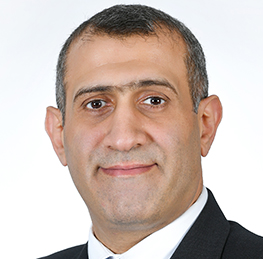
Hadi Otrok (senior member, IEEE) received his Ph.D. in ECE from Concordia University. Prof. Otrok holds a professor position in the department of Electrical Engineering and Computer Science (EECS) at Khalifa University, an affiliate associate professor in the Concordia Institute for Information Systems Engineering at Concordia University, Montreal, Canada, and an affiliate associate professor in the electrical department at Ecole de Technologie Superieure (ETS), Montreal, Canada. He is an associate editor at: IEEE TNSM, IEEE TSC, and Ad-hoc networks (Elsevier). He served in the editorial board of IEEE Networks and IEEE communication letters. He co-chaired several committees at various IEEE conferences including GlobeCom, IWCMC, and WiMob. Also, he is a member of several admin and university committees, founder and
organizer of several contests, and chair of K – 12 Ministry of Education (MoE) Computer Science - AI Framework. His research interests include: Blockchain, Federated Learning, Crowd sensing and sourcing, Ad hoc networks, Cloud and Fog Computing: Game theoretical Models, and Computer and Networks security.
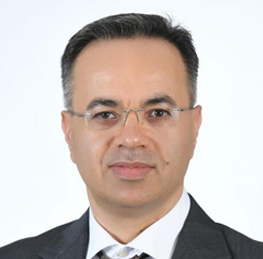
Prof. Sami Muhaidat is currently Professor and the Deputy Director of the 6G Research Center at Khalifa University. Before joining Khalifa University, he was an Assistant Professor in the School of Engineering Science at Simon Fraser University, BC, from 2008-2012. He was also an NSERC postdoctoral fellow in the Department of Electrical and Computer Engineering at the University of Toronto from 2007-2008. He is a Professional Engineer registered in the province of British Columbia and an Adjunct Professor at Carleton University, Canada. Sami's research interests focus on the following areas: 1) IoT with emphasis on battery-free (energy-constrained) devices, 2) communication theory (physical layer security, 6G enabling technologies, and optical wireless communications), and 3) machine learning and their applications in the fields of wireless networks and security. He made contributions in the areas of low-power IoT networks, machine learning for wireless communications, physical layer security, cognitive radio networks, MIMO, cooperative communication networks, optical communications, wireless power transfer, hardware impairments, and non-orthogonal multiple access (NOMA) for future wireless networks. He has published/submitted over 350 peer-reviewed technical papers/book chapters in these areas. Sami was invited to give seminars/presentations at several international conferences/workshops and has received over USD 5M in internal and external funding. During his career, he supervised/co-supervised over 40 graduate students/visitors and postdocs, including 16 Ph.D. students and 12 postdocs. He has a significant record of institutional and professional service, which has been recognized by his peers. His record includes high- profile editorial positions in prestigious IEEE journals: IEEE Transactions on Communications (Area Editor and Editor), IEEE Open Journal of the Communications Society (Lead Guest Editor), IEEE Communications Letter (Senior Editor and Editor), and IEEE Transaction Vehicular Technology (Associate Editor). In addition, he received the top Associate Editor award for outstanding contributions to IEEE Transactions on Vehicular Technology. He served as the Chair of IEEE UAE SPC Chapter from 2017- 2018. Sami was the recipient of several scholarships during his undergraduate and graduate studies and a winner of the 2006 NSERC Postdoctoral Fellowship competition.
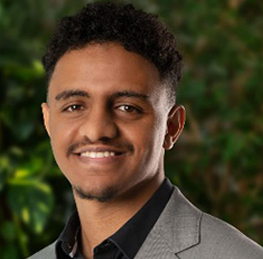
Henok Daniel is a Research Assistant in the Department of Computer Science at Khalifa University, United Arab Emirates. He obtained his B.Sc in Computer Engineering at Khalifa University, United Arab Emirates (2023).
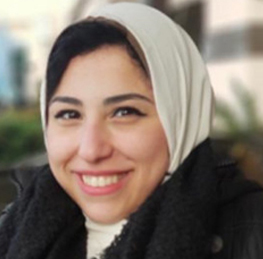
Dr. Essra Ghourab earned her Ph.D. in Electrical and Computer Engineering from Khalifa University, Abu Dhabi (QS Top-200). She is a postdoctoral researcher and educator specializing in secure wireless communication networks, integrating artificial intelligence, blockchain, and extended reality (XR) to enhance the resilience of 5G and non-terrestrial systems. Her research contributions span AI-driven resource allocation, covert communication, and XR security, with publications in leading IEEE journals and collaborations with Virginia Tech (USA) and ETS (Canada). As an educator, she combines hands-on experimentation and emerging technologies to inspire innovation in wireless communications and AI-enabled systems.
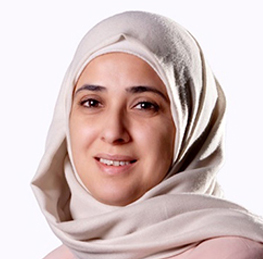
Dr. Naser earned her Ph.D. in Electrical and Computer Engineering from Khalifa University, Abu Dhabi, in 2022, and her M.Sc. in Electrical Engineering from Jordan University of Science and Technology in 2015. She is currently a Postdoctoral Fellow at the KU 6G Research Center, where she also supervises Ph.D. students and contributes to teaching and curriculum development. With over five years of teaching experience, she has taught a range of electrical engineering and computer science courses and
served as a course coordinator. Dr. Naser is actively engaged in IEEE conferences as a session chair, reviewer, and committee member, with over 30 publications and an h- index of 11. Her research interests include advanced signal processing, mobile and optical wireless communications, and next-generation (6G) network design.
